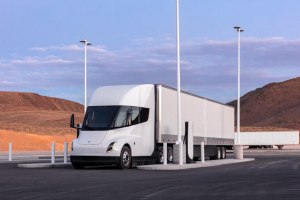General Motors (GM) has announced that it will partner with Netflix to have its EV offerings displayed in shows on the streaming platform, but they are far from the only automaker looking to show off its upcoming EVs.
GM is no stranger to marketing its EVs in fun and strange ways. Since its Superbowl ad about EVs in Norway stole the show back in 2021, the company has been dedicated to making marketing partnerships and creative ads that it hopes will bring new demand. Now, the auto giant has doubled down, partnering with Netflix to show off its new EVs.
“EVs on Screen” was created to “give EVs the stage they deserve,” says the GM press release. This will include appearances on the “Love is Blind,” “Queer Eye,” and “Unstable” Netflix series that have each garnered significant attention. Vehicles like the Cadillac Lyriq, the Chevy Bolt, and the GMC Hummer EV are all expected to make appearances “where appropriate,” says Netflix.
While no financial details about the Netflix deal were made public, there is no doubt that GM made a big bet on putting its vehicles in front of the eyes of consumers. Yet, with similar focuses on EV marketing coming from around the industry, the deal certainly isn’t without precedent.
Other automakers are making similar moves in advertising EVs, even vehicles that have yet to hit the road. Mid last year, BMW unveiled its EV commercial series featuring Arnold Schwarzenegger, whereby the famed bodybuilder dressed as the Greek god, Zeus, showing off the German brand’s newest electric models.
Nissan, whose ads have often focused on the automaker’s participation in Formula E, has also recently launched its EV ad series, “EVs that Electrify.” While more subdued than the offerings from BMW and the General, it still shows a dedication to guiding consumers to the future of mobility.
This leads to the question, why such a focus on EV marketing? Particularly when the marketing focuses on vehicles that are not yet available? For GM, the answer was simple; it’s a chance for exposure and to build the public’s understanding of EVs. “Entertainment has a huge impact on culture. We want to make EVs famous on streaming, small and silver screens to build an EV culture through storytelling that incorporates the experiences of driving and owning an EV,” said GM Global Chief Marketing Officer Deborah Wahl.
In complete opposition, Tesla has remained starkly outside of the traditional marketing sphere, instead opting for what supporters call a higher dedication to vehicle engineering or what critics call a higher dedication to Elon Musk’s Twitter account. Though Tesla’s success, particularly in the North American market, does seem to speak for itself.
It’s unclear if this new EV marketing push will garner the attention that legacy brands are searching for, but at the very least, the hunger for electric vehicles does seem to be building. But with an increasing number of competitive electric vehicles entering the market this year, there is no doubt that the effect of these ads will become obvious fairly quickly.





